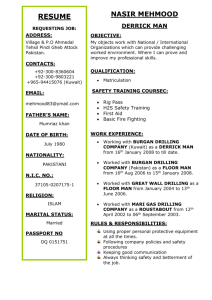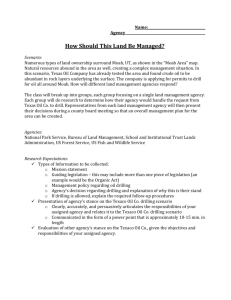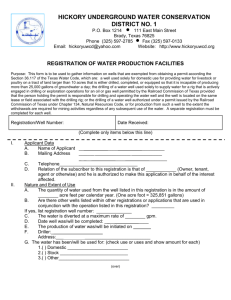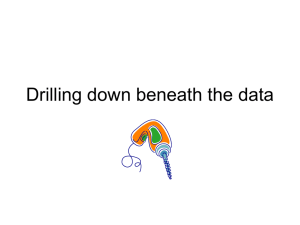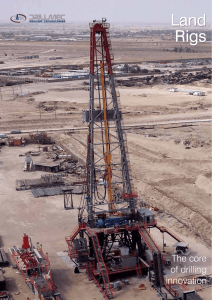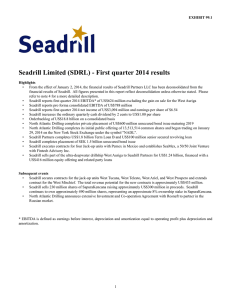January 10, 2013 Docket Number FMCSA-2011-0321 Docket Management Facility (M-30)
advertisement
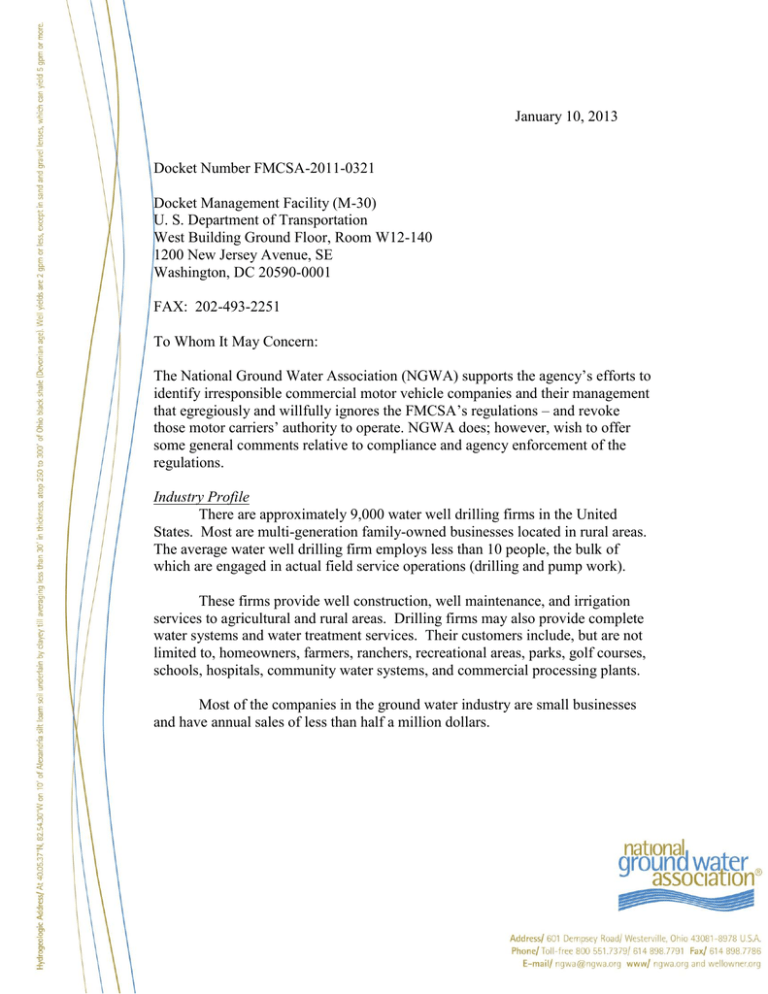
January 10, 2013 Docket Number FMCSA-2011-0321 Docket Management Facility (M-30) U. S. Department of Transportation West Building Ground Floor, Room W12-140 1200 New Jersey Avenue, SE Washington, DC 20590-0001 FAX: 202-493-2251 To Whom It May Concern: The National Ground Water Association (NGWA) supports the agency’s efforts to identify irresponsible commercial motor vehicle companies and their management that egregiously and willfully ignores the FMCSA’s regulations – and revoke those motor carriers’ authority to operate. NGWA does; however, wish to offer some general comments relative to compliance and agency enforcement of the regulations. Industry Profile There are approximately 9,000 water well drilling firms in the United States. Most are multi-generation family-owned businesses located in rural areas. The average water well drilling firm employs less than 10 people, the bulk of which are engaged in actual field service operations (drilling and pump work). These firms provide well construction, well maintenance, and irrigation services to agricultural and rural areas. Drilling firms may also provide complete water systems and water treatment services. Their customers include, but are not limited to, homeowners, farmers, ranchers, recreational areas, parks, golf courses, schools, hospitals, community water systems, and commercial processing plants. Most of the companies in the ground water industry are small businesses and have annual sales of less than half a million dollars. ANNUAL GROSS RECEIPTS BY FIRM (by percentage) 60 50 40 30 Series1 20 10 0 Less than $500,000 $500,001 $1,000,000 More than $1,000,000 Water well drilling contractors meet the water supply needs of America 365 days a year. Given that the majority of the states in the United States have suffered some level of drought conditions the past few years, this water supply service becomes even more crucial. Natural disasters, such as, floods and hurricanes also create a critical and immediate demand for our industry services. The majority of portable drilling rigs travel less than 5,000 miles per year from job site to job site. The table below provides a breakdown of the miles these rigs travel annually. Less than 2,000 miles 2,000 to 5,000 miles 5,001 to 7,500 miles Over 7,500 miles 27.2% 37.5% 15.4% 19.9% Comments While we are first to recognize that some commercial and vocational motor carrier operations will intentionally ignore and attempt to subvert any regulations, we do believe both the federal and state governments have fallen short in efforts to properly educate the enforcement officers and the regulated community. The educational approach for all FMCSA regulations, including the Compliance Safety Accountability (CSA) program, should more closely mirror the Motor Carrier Safety Assistance Program (MCSAP). In MCSAP there was a concerted effort on education of inspectors to insure uniformity of inspections and emphasis on educating the regulated community by providing a variety of supplemental informational resources. We believe this approach would address several of the flaws in the CSA program and result in greater compliance and a sense of cooperation between and among the inspectors and those in the regulated community: Inconsistent enforcement by state inspection personnel; Some inspectors are more pre-disposed to inspect a given factor, like air brakes; cargo securement; etc. thus skewing the aggregate carrier data; The original program intent of focusing on actual safe practice and driver fitness has morphed into algorithms and scoring systems, not originally designated. The determination of a peer group can be especially nebulous for those industries subject to the regulations but that are not traditional commercial trucking operations. Who/what exactly is the peer group for water well drilling rigs and companion service vehicles? Few inspectors are really familiar with water well drilling rigs, thus there is a natural curiosity to stop and inspect the vehicles. The enforcement officer must immediately make judgments on how the equipment and regulations differ from commercial trucking for the groundwater industry and its equipment. Consistent and uniform inspections enable employers to better train employees, maintain equipment, and support safe vehicle operation. Sincerely, Christine L. Reimer, Director Government Affairs
